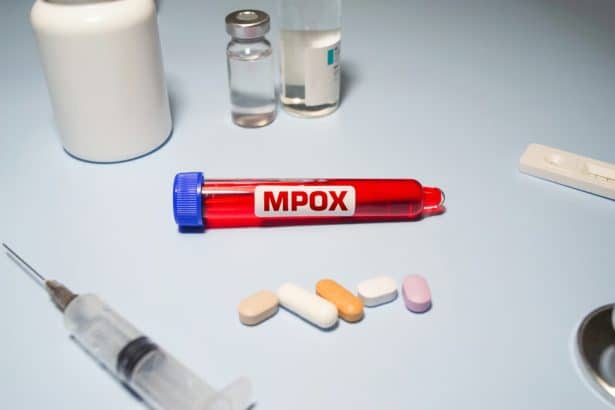Kerala reports first Mpox case, formerly known as monkeypox, raising public health concerns amid ongoing vigilance against infectious diseases. Health Minister Veena George announced on September 18 that a 38-year-old man, a resident of Edavanna in the Malappuram district, tested positive for the viral infection shortly after returning from the United Arab Emirates (UAE).
Patient Details and Current Status
The patient presented to Manjeri Medical College Hospital on September 16 with symptoms indicative of Mpox. Upon examination, healthcare professionals promptly collected samples for testing, sending them to the virology lab at Kozhikode Medical College. Currently, the man is receiving treatment at the hospital and is in stable condition.
This incident marks the second confirmed case of Mpox in India; the first case involved a 26-year-old resident of Hisar, Haryana, who tested positive two weeks prior. The confirmation of these cases highlights the importance of ongoing monitoring and public health measures in the face of international travel and potential outbreaks.
Symptoms and Precautions
Mpox is characterized by a variety of symptoms that typically include a skin rash or mucosal lesions lasting between 2 to 4 weeks. Additional symptoms can include fever, headache, muscle aches, back pain, low energy, and swollen lymph nodes. Upon recognizing these symptoms, the patient acted responsibly by isolating himself from family members, a crucial step in preventing further spread of the virus.
In light of this case, Minister Veena George has issued a strong advisory urging all individuals returning from international travel to monitor their health closely. She emphasized the need for vigilance and recommended that anyone exhibiting symptoms related to Mpox should seek immediate medical attention. The Kerala health department has assured the public that it has set up adequate facilities for treatment and isolation across all districts. All medical colleges in the state are also prepared to manage cases of Mpox, ensuring a robust healthcare response.
Understanding Mpox Transmission
The World Health Organization (WHO) identifies Mpox as a viral illness caused by the monkeypox virus, a member of the Orthopoxvirus genus. The disease can be transmitted through close contact with infected individuals, contaminated materials, or infected animals. The virus poses additional risks during pregnancy, as it can be transmitted to the fetus or newborn either during or after birth.
Health authorities emphasize that awareness and education about transmission methods are vital in curbing the spread of Mpox. Preventative measures, such as practicing good hygiene, avoiding close contact with symptomatic individuals, and adhering to public health guidelines, are essential for minimizing the risk of infection.
Treatment Protocols
Current treatment protocols for Mpox focus primarily on supportive care, which aims to alleviate symptoms such as pain and fever. Ensuring proper nutrition and hydration is crucial, along with monitoring skin care to prevent secondary infections. In cases where co-infections are present, such as HIV, specific treatment may be necessary to address these additional health concerns.
Historical Context
The emergence of Mpox in India is not unprecedented. In 2022, the country reported a total of 30 cases of the disease, all of which were treated successfully. These prior experiences underscore the importance of early detection, public awareness, and healthcare readiness in managing infectious diseases.
Government Response and Public Awareness
In response to this new case, the Kerala government is taking proactive steps to safeguard public health. Health Minister Veena George has called for heightened awareness and preparedness among the general public, particularly among those who have traveled internationally. The government is committed to ensuring that adequate resources are in place for effective response and treatment.
To further educate the public, health officials will be disseminating information about Mpox, its symptoms, and the importance of seeking medical care. Community outreach programs will also be implemented to raise awareness, particularly in areas with higher rates of international travel.
As Kerala navigates this new challenge, the focus remains on protecting the health and safety of its citizens while effectively managing the potential risks associated with infectious diseases. The coordinated efforts of health authorities, community members, and the government will be crucial in addressing this public health concern and ensuring a swift response to any further developments


